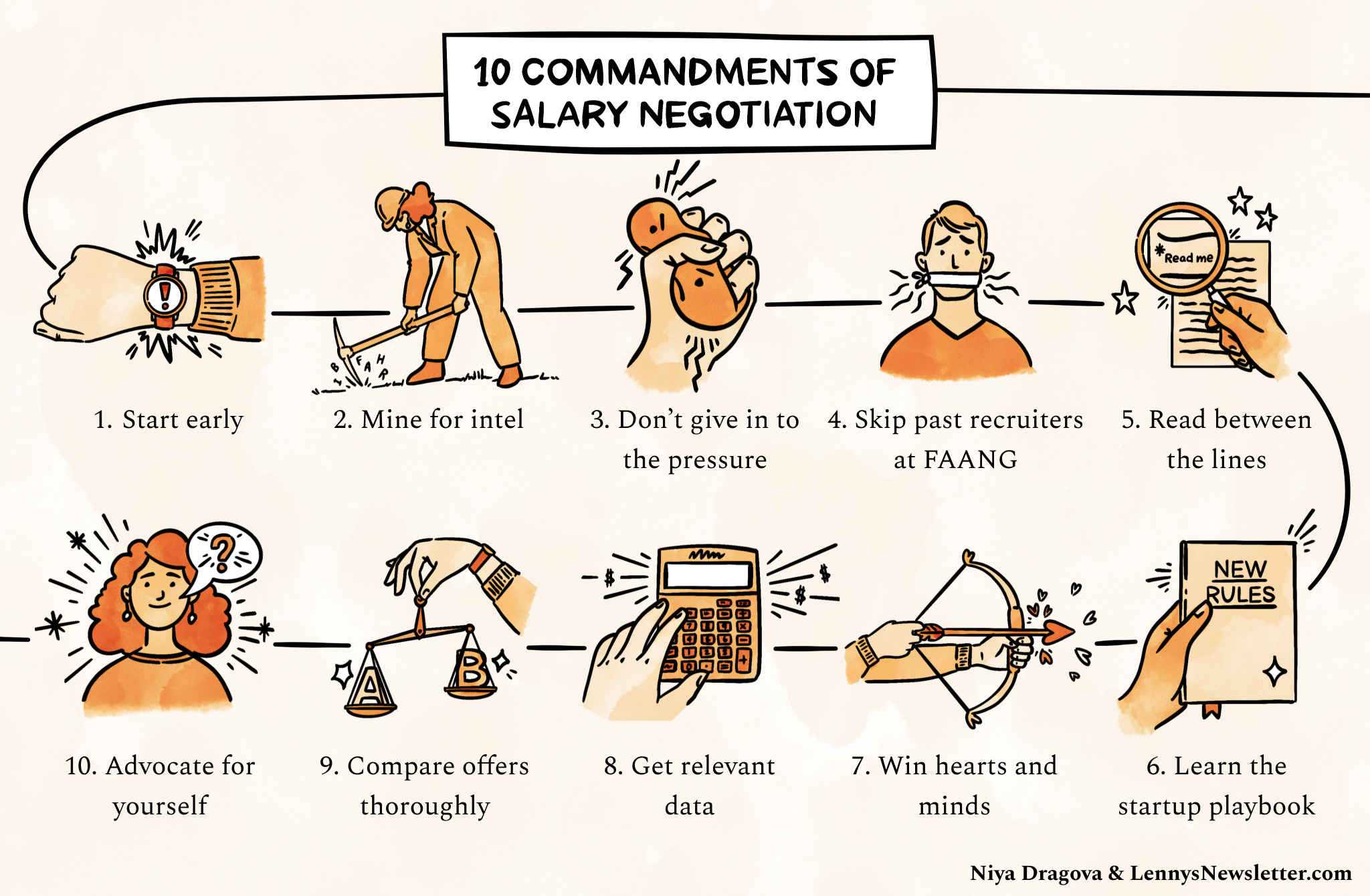Salary negotiation is a crucial skill that can significantly impact your career trajectory.1 By understanding the nuances of negotiation and employing effective strategies, you can secure a fair and competitive salary.2
Why is Salary Negotiation Important?
- Financial Security: A higher salary can provide greater financial stability.
- Career Advancement: A competitive salary can open doors to better opportunities.
- Job Satisfaction: Feeling valued can boost job satisfaction and motivation.3
Key Strategies for Successful Salary Negotiation:
- Do Your Research:
- Know Your Worth: Research industry standards, company pay scales, and your own qualifications.4
- Identify Your Bottom Line: Determine the minimum salary you’ll accept.
- Understand the Company’s Budget: Research the company’s financial health and hiring budget.5
- Highlight Your Value:
- Quantify Your Achievements: Use specific examples to demonstrate your impact.
- Showcase Your Unique Skills: Highlight any special skills or certifications that set you apart.6
- Emphasize Your Potential: Discuss your long-term goals and how you can contribute to the company’s success.7
- Practice Active Listening:
- Pay Attention: Listen carefully to the employer’s questions and concerns.8
- Ask Clarifying Questions: Seek clarification to ensure mutual understanding.9
- Respond Thoughtfully: Take time to consider your responses before speaking.
- Negotiate with Confidence:
- Maintain a Positive Attitude: Project confidence and enthusiasm.10
- Use “I” Statements: Focus on your needs and desires.
- Be Assertive, Not Aggressive: State your position firmly but respectfully.
- Consider the Total Compensation Package:
- Beyond Base Salary: Negotiate for additional benefits like bonuses, stock options, or flexible work arrangements.11
- Long-Term Incentives: Discuss potential future promotions and salary increases.
- Be Prepared to Walk Away:
- Have a Plan B: If the negotiation stalls, be willing to walk away.
- Leverage Other Offers: If you have multiple job offers, use them as leverage.12
Common Negotiation Tactics:
- The Anchoring Technique: The first offer sets the tone of the negotiation.13
- The Silence Technique: Use silence to encourage the other party to speak first.
- The “If-Then” Technique: Offer concessions in exchange for something you want.14
- The “Good Cop, Bad Cop” Technique: Two negotiators, one friendly and one aggressive, work together to pressure you.
By mastering these strategies and tactics, you can increase your chances of securing a fair and competitive salary. Remember, negotiation is a skill that can be learned and improved with practice.
Would you like to know more about a specific aspect of salary negotiation, such as how to handle difficult questions or how to negotiate a higher salary?




